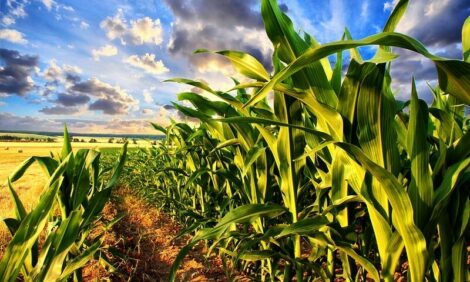



Recognition for MSU
MISSISSIPPI, US – While Mississippi's 3rd Congressional District celebrates its new No. 1 status in poultry production, industry insiders know Mississippi State University's support made this achievement possible.Mississippi State University (MSU) is one of only six land-grant institutions with a separate poultry science department. The others are North Carolina State University, the University of Georgia, Auburn University, the University of Arkansas and Texas A&M University. Poultry is the top agricultural commodity in all of these states except Texas.
"Our department has provided 100 per cent job placement opportunities for graduates since its inception in 1950," said Michael Kidd, head of MSU's Department of Poultry Science. "We see ourselves as a vehicle to educate and nurture the future leaders of Mississippi’s poultry industry, and we give them the tools they need to succeed."
Mississippi 3rd District Rep. Gregg Harper announced the ranking on 17 June in Washington, DC. Production rank is based upon the 2007 Census of Agriculture by the US Department of Agriculture. Mr Harper's district generated more than $1.78 billion in sales of poultry and eggs.
"Mississippi's poultry producers should be proud to lead the nation," Rep. Harper said. "We are really lucky to have a great educational support system in place for our industry because of the MSU Department of Poultry Science."
Poultry science teaching faculty strive to enhance learning and training opportunities for their students, and department researchers consider projects that are relevant to the industry's efficiency and sustainability. This research encompasses nutrition, physiology and genetics; fundamental mechanisms behind these basic responses; and pre- and post-harvest food safety systems and welfare.
"Our goal is to impact the industry, whether in the immediate future or in the long term, through research that has a commercial application," Dr Kidd said. "We use the network of the MSU Extension Service to distribute this information in a timely manner, and we feel we have been successful."
There was additional good news from the census report. The 3rd District produced 615 million birds, which led the nation in the number of broilers and other meat-type chickens sold. The district topped congressional districts with poultry production in other states even though it has fewer poultry farms than they do.
There are 1,680 farms in Mississippi's 3rd District. As a comparison, the 3rd Congressional District in Arkansas, which ranked No. 2, has 2,170 farms with a production value of $1.66 billion. At No. 3 was Alabama's 4th Congressional District, which has 2,291 farms with a production value of $1.61 billion.
"We knew the poultry industry was large in Mississippi, but the numbers from USDA proved that the 3rd District is the buckle of the chicken belt for the United States," said Mark Leggett, president of the Mississippi Poultry Association.
The 3rd Congressional District stretches diagonally from the southwestern corner of the state at Woodville to Starkville in the northeast. Most of the state's poultry production lies within this area. The industry in general has experienced continued growth because its participants are extremely adept at production.
"Mississippi has experienced a general increase in production over time, based on the growth of the industry in its eastern counties and the size of the birds being produced in southern counties," Dr Kidd said.
The poultry industry also has had a significant impact on the state’s economy by creating jobs and a favourable climate for additional business development. Many efforts by the poultry science department to assist the industry have contributed to this success story.
"We need to think of poultry as an industry, not just a crop," Dr Kidd said. "The positive effect this industry has on employment begins with jobs associated with the different aspects of raising the birds to the point where food products go out the door for sale. The economic impact goes way beyond production."
The farm-gate value of Mississippi poultry in 2008 was more than $2.34 billion but this figure does not include the value generated from the first and second processing stages, exports and spin-off businesses.
"We are a commodity department, which means we work closely with the industry through our education, research and outreach functions to help them improve their production and efficiency," Dr Kidd said. "Because the industry has great respect for what we can do on the academic front, it is a pleasure to work with them and celebrate this milestone of becoming the national leader in poultry production."











